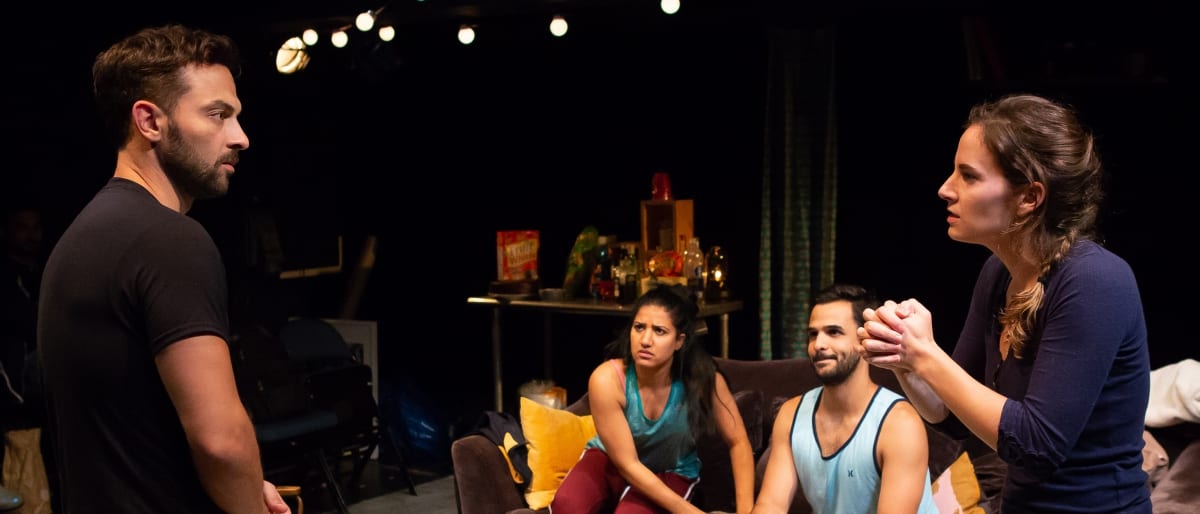Now here is a play worth seeing! For its writing, for its acting, for its wisdom. Lesser America’s production of Catya McMullen’s Agnes at the 59E59 complex has something noteworthy to say about the storms – real, metaphysical, and social – that engulf our lives and that bring us together and yet keep us apart. The eye of the hurricane in Agnes is the complex and ambivalent nature of human connection of four friends and one sibling. It is a tale full of the sound and the fury of our lives, told through a young man’s painful awareness of his inability and struggle to relate to others.
Director Jenna Worsham has assembled an extraordinary ensemble of versatile and engaging actors. She also includes an insert about ASD (Autism Spectrum Disorder) in the program packet to educate us about this condition that is central to the action of the play. Her excellent and fast-paced direction, along with flashing lights and overlapping dialogue, create the chaotic and cacophonic experience of an ASD person’s inner world.
Charlie (John Edgar Barker) lives in a raucous New York City apartment with his younger sister and caretaker June (Laura Ramadei), her lover Elle (Mykal Monroe), along with Ronan (Hiram Delgado), who’s just been dumped by his girlfriend. So it’s tight quarters, especially for Charlie, who has Asperger’s. Into this melee of young energy there erupts the beautiful and sexy Anna, played with an alluring ambiguity of feeling by Claire Siebers. She could be the embodiment of the force of Agnes, a stormy presence, wreaking a havoc that ultimately brings forth relationship revelations.
The story revolves around Charlie, in a superb performance by John Edgar Barker, and his journey to break free from the confines of his autistic condition to experience the so-called normal reality of his sister and her friends. This passage will challenge him to experience empathy with others, and allow him to be sexually intimate with another human being. He will never be the same again.
On the night of an impending hurricane Agnes, Charlie has come home from a long trip with a box of cassettes on where he has recorded various people and their stories (at least 64): “their greatest moment of human connection,” he says. Four of these recorded stories are enacted by the other actors as the recorded characters. This theatrical device is a subtle and brilliant indication of what Charlie knows to be lacking in his own reality: that we and others are one.
Attempting to connect with other people is not only Charlie’s conflict. All the characters in Agnes experience isolation and loneliness at some point. McMullen, however, will not let her characters languish in this existential dilemma for long. Humor abounds to assuage any angst, particularly with Hiram Delgado’s wonderful portrayal of Ronan. He never gives up despite relationship failures, and bounces back from adversity as does his “recorded” character, Jerry, who accepts his connection to his premature baby girl. June and Charlie are left to “keep trying.”
The play left me remembering Elizabeth Bishop’s “In the Waiting Room,” where young girl first becomes aware of her place in the world with others:
“Why should you be one, too?
I scarcely dared to look
to see what it was I was.”

